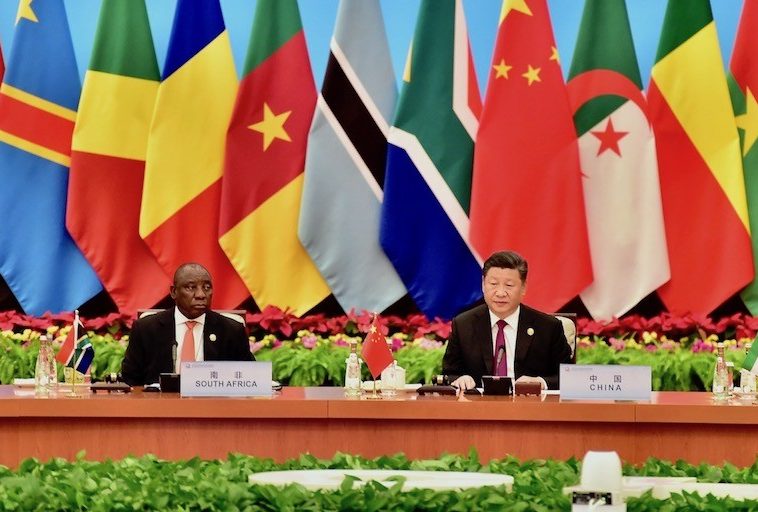According to the World Food Programme, an estimated 22% of Botswana’s population experiences moderate or severe food insecurity. This translates to roughly 540,000 people struggling to access enough nutritious food consistently. The issue is particularly acute in rural areas, where poverty and limited access to fertile land exacerbate vulnerability. The level of hunger in Botswana will be investigated in this article, as its underlying causes, and how technology is transforming the country’s agricultural sector, promoting food security, and strengthening communities.
Not forgetting climate change which poses a huge threat, with frequent droughts and erratic rainfall patterns disrupting agricultural production. A 2020 report by the Food and Agriculture Organization (FAO) highlights the concerning trend of declining crop yields due to climate variability.
To effectively combat hunger, it’s crucial to address its underlying causes. Tech-based solutions are proving instrumental in this endeavor:
Precision Agriculture: Drones equipped with multispectral sensors are being utilized by companies like Project Anton Tech to map farmlands, and identify pest infestations and soil deficiencies. This data empowers farmers to make informed decisions about resource allocation, leading to targeted spraying, improved soil health, and ultimately, increased yields. A 2023 study published in the Journal of Remote Sensing found that drone-assisted precision agriculture resulted in a 25% reduction in pesticide usage and a 10% increase in crop yields in Botswana.
Climate-Smart Agriculture: Technologies like weather forecasting apps and satellite imagery are providing invaluable insights into weather patterns and soil moisture levels. Farmers can leverage this information to optimize planting schedules, select drought-resistant crops, and implement water-saving irrigation techniques. A 2022 pilot project by the International Institute of Tropical Agriculture (IITA) in collaboration with the Botswana Ministry of Agriculture demonstrated a 30% increase in crop yields for smallholder farmers using climate-smart practices.
Mobile Money and E-commerce Platforms: Limited access to financial services often hinders farmers’ ability to invest in essential inputs like seeds and fertilizers. Mobile money platforms like M-Pesa are facilitating secure and efficient financial transactions, enabling farmers to access credit and purchase resources. Additionally, e-commerce platforms are connecting farmers directly to consumers, eliminating middlemen and ensuring fairer pricing for their produce.
Knowledge Dissemination and Capacity Building: Information and communication technologies (ICTs) are playing a critical role in bridging the knowledge gap. Educational apps and online platforms offer farmers access to up-to-date agricultural techniques, best practices for pest control, and market information. UShare, a social media platform specifically designed for farmers, allows them to share knowledge, ask questions, and connect with agricultural experts.
However, tech-driven solutions are not just about increasing yields; they empower communities to become more resilient and self-sufficient. Here’s how:
Small-Scale Irrigation Technologies: Drip irrigation systems and solar-powered water pumps are enabling communities to cultivate crops in arid regions, maximizing water efficiency and promoting year-round production. A 2021 report by the International Water Management Institute (IWMI) found that small-scale irrigation projects in Botswana resulted in a 40% increase in household income for participating farmers.
READ ALSO: Telemedicine and Other Disruptive Innovations in African Health Care System
Food Waste Reduction Apps: Apps like Leftover Love connect restaurants and supermarkets with NGOs and charities, ensuring surplus food reaches those who need it most. This not only reduces food waste but also fosters a culture of community support.
Post-Harvest Loss Reduction Technologies: Technologies like solar dryers and hermetic storage bags are helping farmers preserve their harvest, minimizing losses due to spoilage. This ensures food availability throughout the year, particularly during lean seasons.
To ensure inclusivity, fostering digital literacy and developing affordable, locally relevant technologies are crucial. Public-private partnerships and government initiatives play a vital role in providing subsidies, training programs, and infrastructure development to bridge the digital divide.
The fight against hunger in Botswana is a complex but not insurmountable challenge. Technological advancements offer a powerful arsenal of tools to transform the agricultural landscape, empower communities, and build a more resilient food system. By embracing these solutions and addressing the challenges of accessibility and affordability, Botswana can move towards a future where everyone has access to safe, nutritious food.


